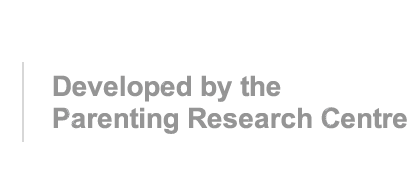It is commonly recognised that the early years of life are critically important in determining children’s long-term development. At school entry, children from families experiencing disadvantage often lag behind their peers in their language and communication skills, their social-emotional development, and they are more at risk of poorer long-term outcomes.
Parents are children’s first and most enduring teachers and a home environment that is warm and supportive, stimulating, and rich in conversation and written language, promotes children’s social and emotional development and communication skills. It also helps to prepare them for school.
In an effort to improve the long-term development and outcomes for young children growing up in disadvantage, the Victorian Department of Education and Training (formerly the Department of Early Education and Childhood Development) commissioned the Parenting Research Centre (PRC) to design and conduct a large-scale three-year research study, the Early Home Learning Study (EHLS), with the following aims:
- To improve the early learning and development foundations of babies (6-12 months) and toddlers (12-36 months) living in disadvantaged circumstances for up to 2000 families.
- To build the capacity of the existing Victorian service system to support parents to create positive home learning experiences for their children.
- To develop scientific knowledge of how best to support parents to create enriched home learning environments in the early years within the Victorian context.
Between 2009 and 2012, as part of the EHLS, the PRC developed and evaluated smalltalk in a cluster randomised controlled trial (cRCT). In the EHLS, 18 local government and community service agencies (Providers) were recruited to deliver smalltalk-enhanced groups in 22 local government areas (LGAs). Sixteen of the Providers delivered smalltalk in a single LGA, while the other two were smalltalk Providers across multiple LGAs. smalltalk delivery sites were a mixture of metropolitan, urban fringe and rural LGAs. All groups were newly established for the EHLS, that is, they were not conversions of previously existing parenting groups or supported playgroups.
As part of the EHLS, the PRC compared two variants of smalltalk (group alone and group plus an in-home support component) with ‘standard care’ in two existing community-based service platforms; Maternal and Child Health (MCH) parent groups and Supported Playgroups (SPG). Ten LGAs offered smalltalk through the MCH platform and 10 through the SPG platform and over 2200 families participated in the study.
In the MCH Platform, smalltalk was delivered as a six-week, 2-hours per week, group parenting intervention for families with babies aged 6 to 12 months. In the SPG platform, it was a ten-week, 2-hours per week, supported playgroup enhancement for families with toddlers aged 12-36 months.
There were two models of intervention intensity within each platform: the parent group or supported playgroup alone (‘smalltalk’) or the parent group/supported playgroup supplemented by an additional six fortnightly home-based, individual sessions (‘smalltalk plus’).
Reference:
Nicholson, J. M., Cann, W., Matthews, J., Berthelsen, D., Ukoumunne, O. C., Trajanovska, M., Bennetts, S. K., Hillgrove, T., Hamilton, V., Westrupp, E., & Hackworth, N. J. (2016). Enhancing the early home learning environment through a brief group parenting intervention: Study protocol for a cluster randomised controlled trial. BMC Pediatrics, 16:73. DOI: 10.1186/s12887-016-0610-1 Click here for full text


